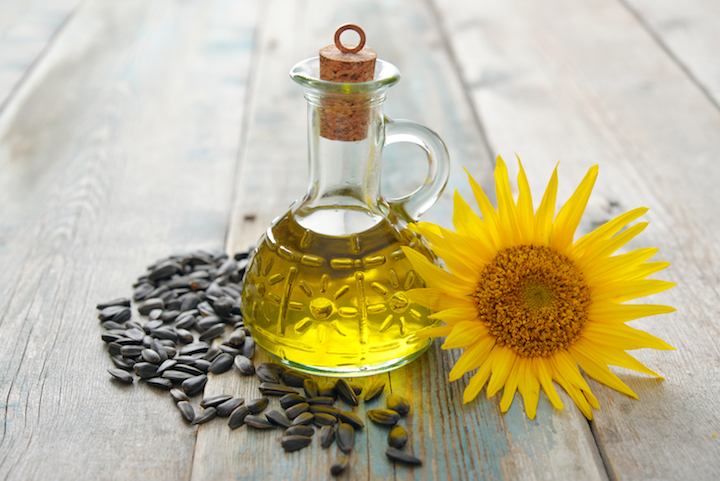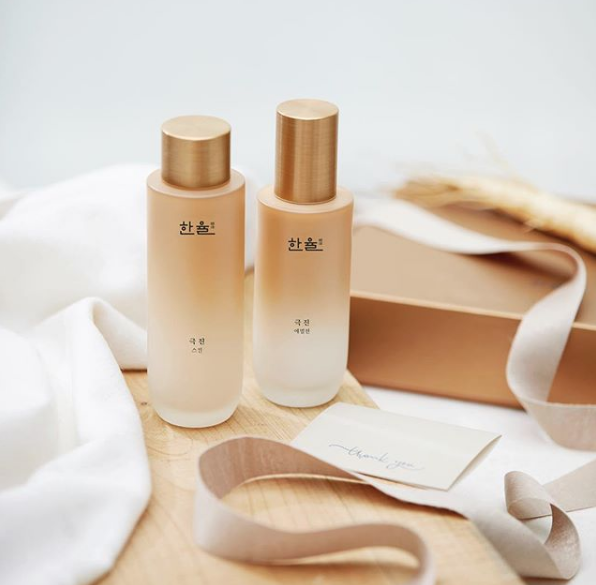Tocopherol 101: How Vitamin E Is an Easy Way to Fight Free Radicals & Inflammation
You see it in a lot of skincare ingredient lists, but what exactly does tocopherol do?
What do vitamin C, blueberries, strawberries, wine, and coffee have in common? They are all powerful sources of antioxidants. And today’s skincare deep dive is going to talk about another super cool antioxidant to add to the bunch: tocopherol, or vitamin E.
What is tocopherol?
Tocopherol isn’t one single ingredient, rather, it’s an umbrella term for a host of different vitamin E derivatives. Some are naturally derived from wheat germ, sunflower seed oil, or soybean oil, and some are synthetically made in a lab. How can you tell the difference? Let’s take a look at a list of the names of the most common tocopherols found in skincare:
d-alpha-tocopherol
d-alpha-tocopherol acetate
dl-alpha tocopherol
dl-alpha tocopherol acetate
If you see the “d” by itself, it’s naturally derived. If it’s a “dl,” it’s synthetic. The more you know! But just know that there isn’t any real discernible difference between the two as far as their effectiveness.
Even though there are a ton of different types of vitamin E derivatives, tocopherol is the only one that is suitable for humans.

So what does it do? How does it work?
We’ve established that tocopherol is an antioxidant. What do antioxidants do and why are they important in skincare? Antioxidants prevent cellular damage by removing free radicals, the unstable little guys whose single goal is to get stable. How do they attempt this? Well, they basically take every single type of electron in their way. Proteins? Sure. DNA, oh yeah. Connective tissues? Why not. So as free radicals are chomp, chomp, chomping their way through your skin cells, you’re left with damage in the form of fine lines, wrinkles, sagging skin … basically, they accelerate the skin’s aging process.
Pollution, not getting enough sleep, stress, alcohol, smoking tobacco, and sun damage are a few of the contributors to free radicals. So adding some vitamin E (aka tocopherol) to your routine can help combat and stave off the damage caused by these factors. Vitamin E can visibly reduce the signs of aging, strengthen the moisture barrier, and act as an anti-inflammatory ingredient, calming and soothing irritated skin.
What type of products will I see tocopherol in?
Tocopherols are typically found in anti-aging and anti-pollution serums, masks, and creams. The Missha Super Aqua Cell Renew Snail Cream has some good ol’ vitamin E in there, as does the Hanyul Geuk Jin Tristige Toner (can we take a second to talk about the packaging for this toner because it is to die for).

Can all skin types use tocopherol?
When tocopherol is in a skincare product, it typically poses zero issues for most skin types. However, straight up vitamin E oil could be problematic for those with oily and/or acne-prone skin, as it’s quite thick and doesn’t really absorb into the skin like other oils. And even though it is very rare, there are people who have severe allergies to vitamin E/tocopherol. As always, patch test a new product before slathering it all over your face to make sure everything is a-OK!
Ready to see if tocopherol will change your skin? If so, we're giving you a FREE SanDaWha Revitalizing Liposome Lotion.*
All you have to do is comment below and tell us how you fight free radicals and what your favorite antioxidant is!
The first 50 commenters will receive a coupon code for a free SanDaWha Revitalizing Liposome Lotion* with their next order.
* U.S. customers only. Non-U.S. customers will receive a comparable product.
Loading...